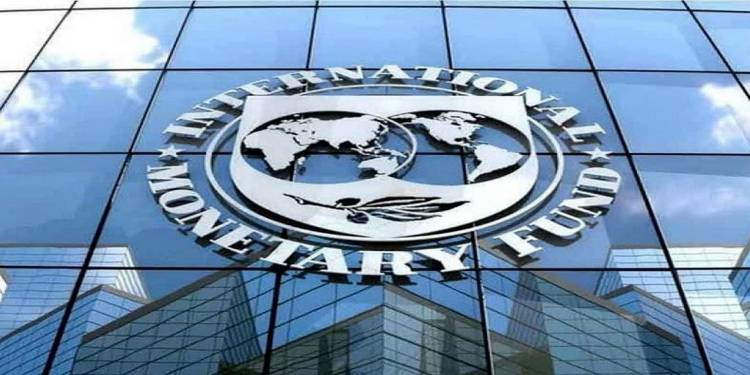
Report by Mehtab Haider for The News
Rekindling expectations for an early signature of the accord, the International Monetary Fund (IMF) has informed Pakistan that it has confirmation from Saudi Arabia of $2 billion in new deposits.
Since the end of January, Islamabad and the IMF have been discussing the release of $1.1 billion from a $6.5 billion bailout package decided upon in 2019. The government has reduced subsidies, abolished a fictitious exchange rate ceiling, increased taxes, and increased fuel costs in order to release the funding.
The agreement has been postponed, nevertheless, due to promises of more funding from friendly countries.
The lender had alerted the Pakistani authorities about the change, and the Fund personnel appeared to be generally pleased with the most recent confirmation.
According to the source, the Saudi government is now prepared to make a public declaration, maybe during Prime Minister Shehbaz Sharif's planned visit to the country.
The Saudi ambassador to Pakistan recently suggested in an interview that his country has always stood by Pakistan in difficult circumstances and that happy news would be released shortly.
All eyes are now on the UAE to confirm a further $1 billion deposit from them, which might open the door to negotiating an SLA with the IMF, according to the sources.
On his trip to the US, where he is scheduled to undertake discussions about the transfer of cash, Finance Minister Ishaq Dar is likely to stop in the UAE.
The Ministry of Petroleum announced an unforeseen cross-fuel subsidy for owners of motorbikes and cars up to 800 cc, which needed to be canceled at this point in agreement with the PM Office. This unexpected cross-fuel subsidy was another roadblock to signing the SLA with the IMF.
According to the sources, the government has not yet withdrawn the proposed cross-fuel subsidy, which cannot be put into place in a hasty manner.
The IMF used the announcement of a half-baked cross-fuel subsidy as a justification for postponing the signature of the SLA since they were still seeking clarification on how the program would be executed in a transparent manner.
Rekindling expectations for an early signature of the accord, the International Monetary Fund (IMF) has informed Pakistan that it has confirmation from Saudi Arabia of $2 billion in new deposits.
Since the end of January, Islamabad and the IMF have been discussing the release of $1.1 billion from a $6.5 billion bailout package decided upon in 2019. The government has reduced subsidies, abolished a fictitious exchange rate ceiling, increased taxes, and increased fuel costs in order to release the funding.
The agreement has been postponed, nevertheless, due to promises of more funding from friendly countries.
The lender had alerted the Pakistani authorities about the change, and the Fund personnel appeared to be generally pleased with the most recent confirmation.
According to the source, the Saudi government is now prepared to make a public declaration, maybe during Prime Minister Shehbaz Sharif's planned visit to the country.
The Saudi ambassador to Pakistan recently suggested in an interview that his country has always stood by Pakistan in difficult circumstances and that happy news would be released shortly.
All eyes are now on the UAE to confirm a further $1 billion deposit from them, which might open the door to negotiating an SLA with the IMF, according to the sources.
On his trip to the US, where he is scheduled to undertake discussions about the transfer of cash, Finance Minister Ishaq Dar is likely to stop in the UAE.
The Ministry of Petroleum announced an unforeseen cross-fuel subsidy for owners of motorbikes and cars up to 800 cc, which needed to be canceled at this point in agreement with the PM Office. This unexpected cross-fuel subsidy was another roadblock to signing the SLA with the IMF.
According to the sources, the government has not yet withdrawn the proposed cross-fuel subsidy, which cannot be put into place in a hasty manner.
The IMF used the announcement of a half-baked cross-fuel subsidy as a justification for postponing the signature of the SLA since they were still seeking clarification on how the program would be executed in a transparent manner.

